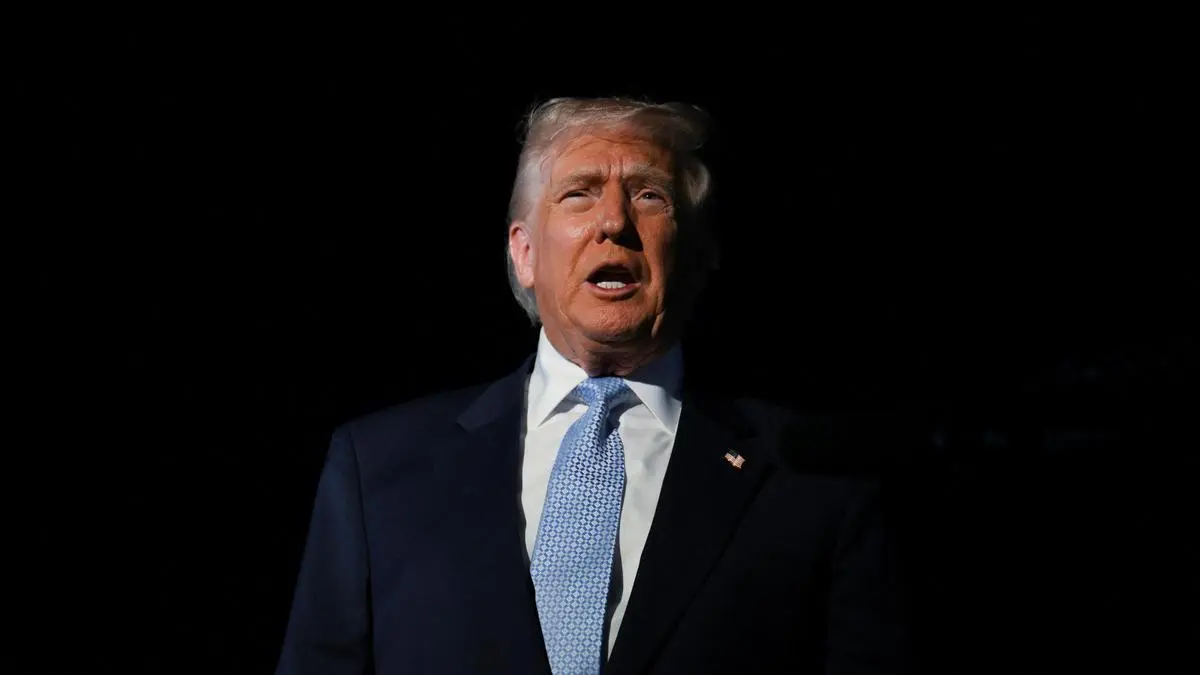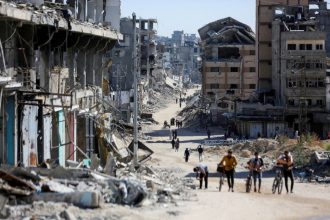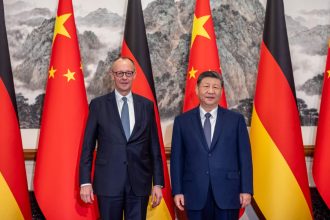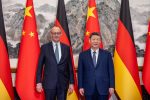In a forceful message aimed at reshaping global alliances, US President Donald Trump has issued a clear warning: countries choosing to continue business with Russia should be prepared for “very severe sanctions.” This renewed pressure comes as the White House and Republican lawmakers advance aggressive legislation designed to cut off economic support to Moscow.
Speaking to reporters on Sunday, President Trump acknowledged that Congress is moving swiftly toward tighter restrictions. When asked whether it was time to strengthen measures against Russia and President Vladimir Putin, he responded, “I hear they’re doing that, and that’s okay with me.”
Trump explained that Republicans are pushing forward with tough sanctioning packages targeting any nation that maintains commercial ties with Russia. He added that Iran may also be included in the expanding list of pressured states.
“So any country that does business with Russia will be very severely sanctioned. We may add Iran to the formula,” he stated.
The administration has already enforced steep tariffs, including 50 percent duties on India, with an additional 25 percent levy specifically tied to its purchases of Russian energy. Lawmakers are now proposing even harsher steps.
A new bill introduced by Senator Lindsey Graham suggests a 500 percent tariff on secondary buyers or resellers of Russian oil. This bold proposal has gained strong bipartisan momentum inside the Senate Foreign Relations Committee.
In collaboration with Senator Richard Blumenthal, Graham also introduced the Sanctioning Russia Act of 2025, aiming to impose sweeping secondary sanctions on countries that continue to finance Russia’s war in Ukraine through ongoing energy purchases. The legislation has already secured 85 Senate cosponsors, signaling overwhelming support.
Graham and Blumenthal emphasized the urgency behind these actions, saying the administration’s new approach could be pivotal in ending the conflict.
They argued that the decisive pressure point lies in targeting countries such as China, India, and Brazil, which they claim bolster Russia’s war efforts by buying discounted oil and gas.
In the end, beyond the headlines and political strategy, this story is a reminder of how interconnected our world has become. Every policy, every tariff, and every diplomatic shift affects real people, real communities, and the fragile balance of global peace. Understanding these developments helps us stay informed, grounded, and prepared for whatever comes next.








